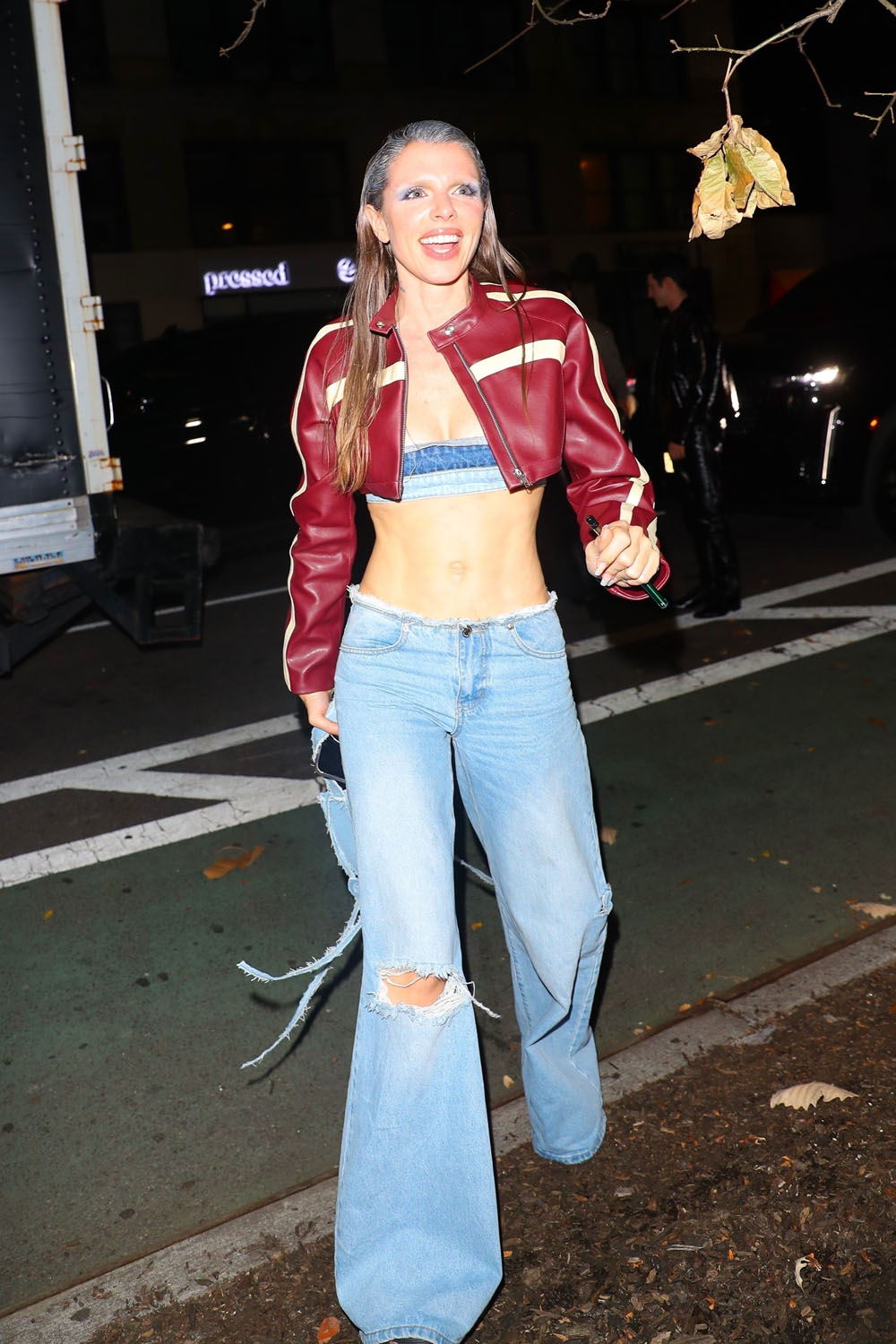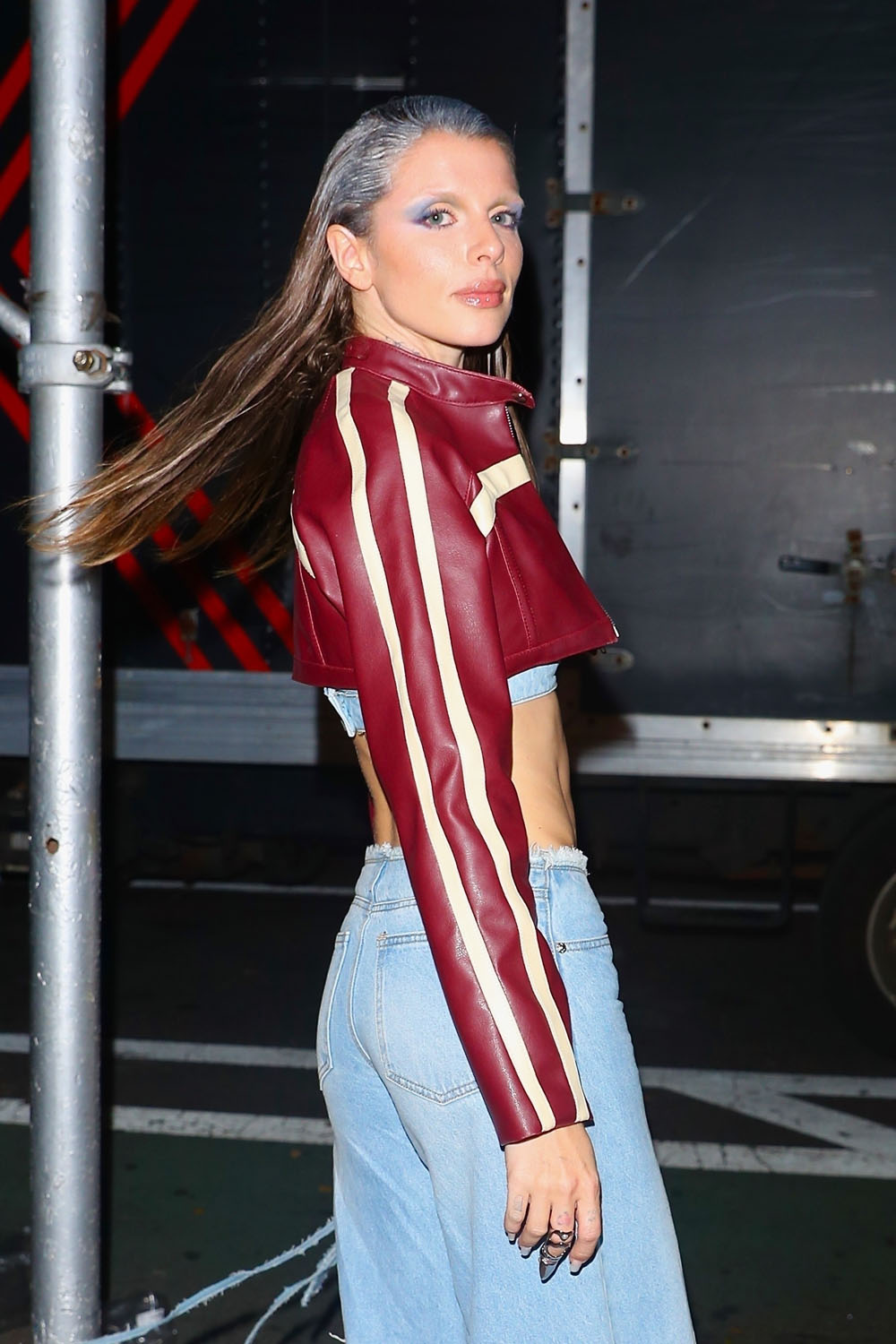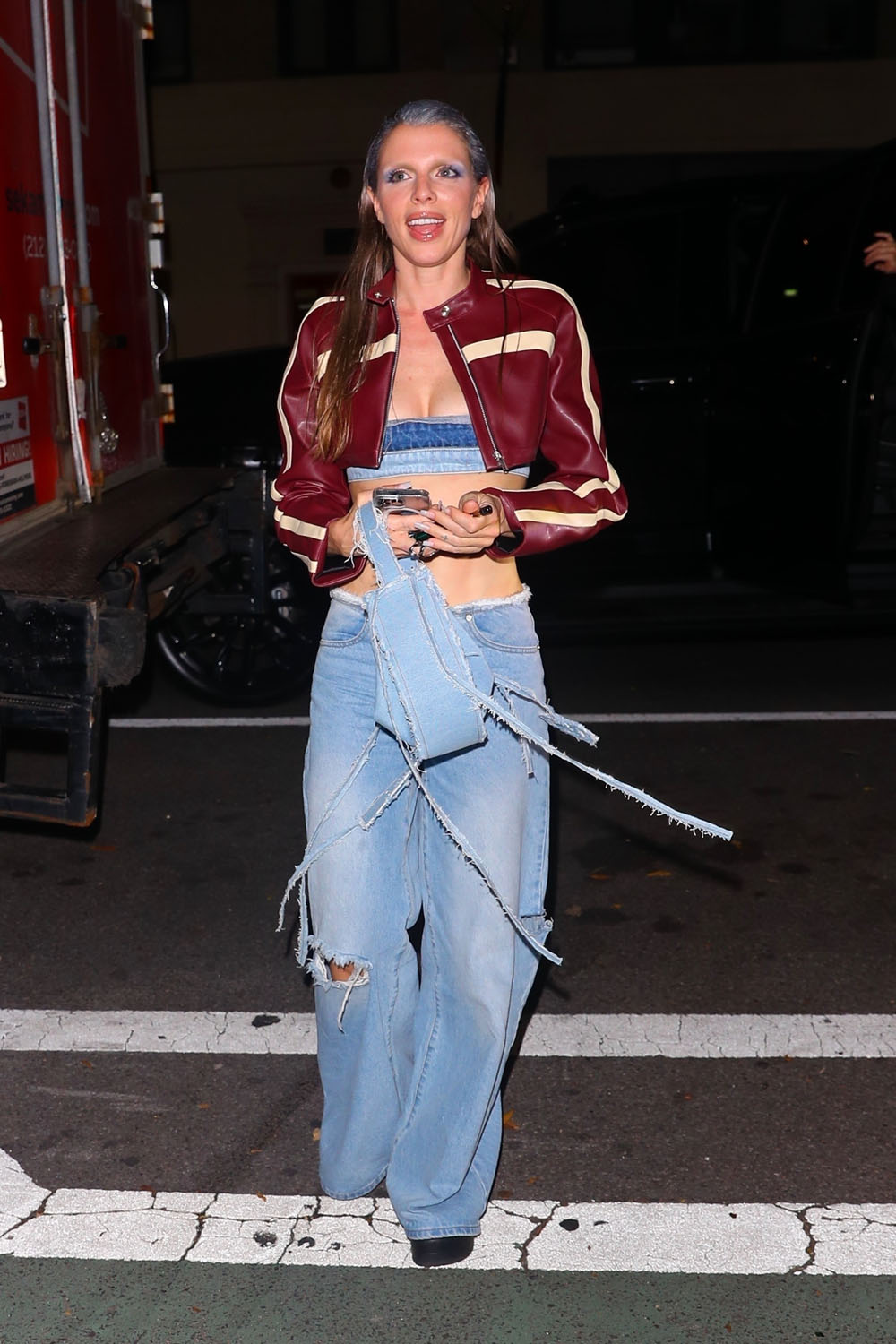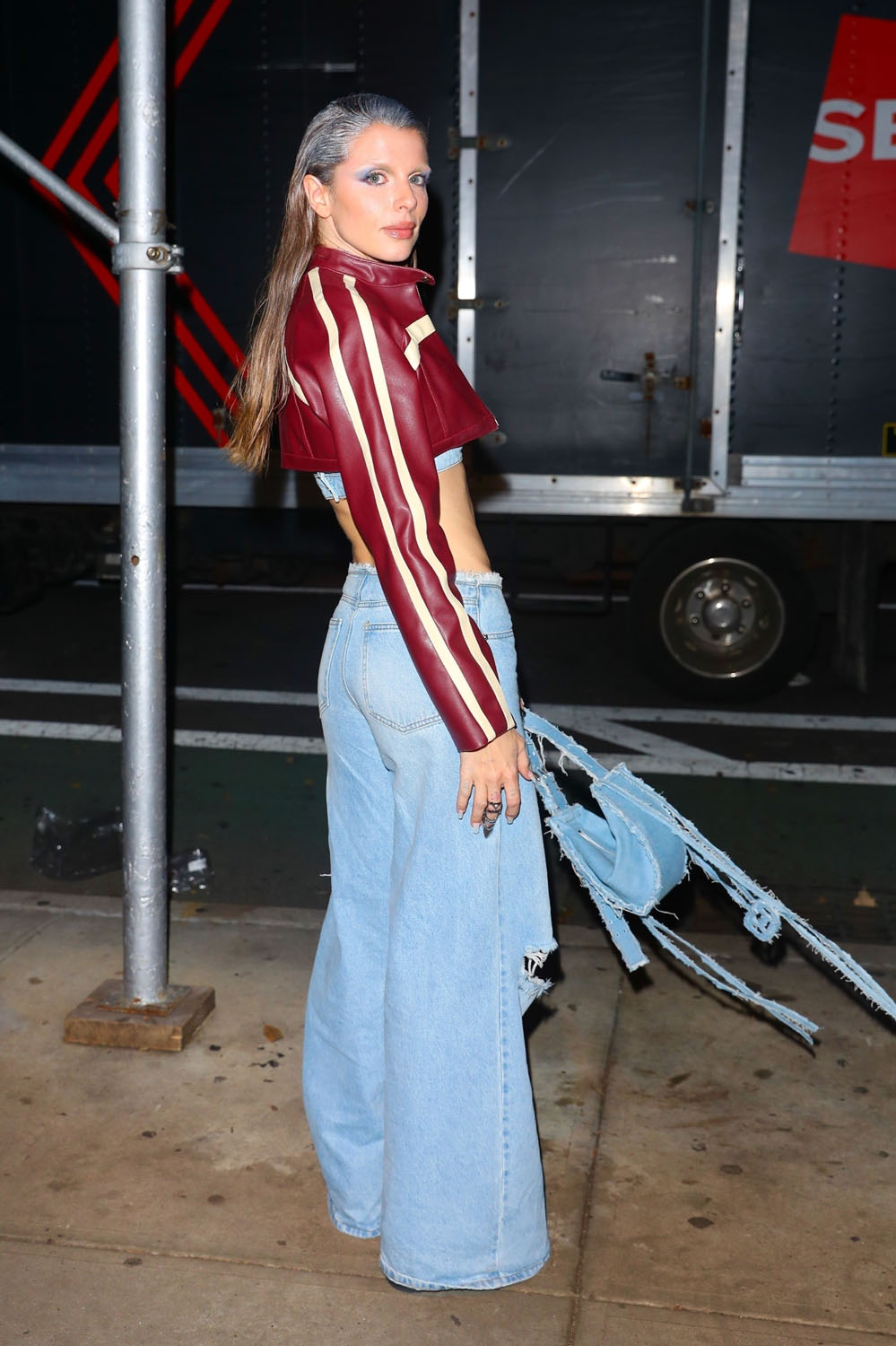Julia Fox is more relatable than I thought



As Lainey just mentioned in the previous post, Julia Fox recently appeared on Emily Ratajkowski’s High Low podcast and opened up about her relationship with sex – saying that she “doesn’t like it.”
“Sex for me always has been one-sided, but I think all women can say that. So it’s like, if I don’t really need anything from you, I don’t see the point,” Julia told Emily.
She reflected on her early career as a dominatrix, suggesting that it desensitized her to sex and that she depended on the “survival tactic” of disassociating whenever she went down the stairs of the Chelsea dungeon where she was paid to perform men’s greatest – and strangest – desires.
“I’m really desensitized to sex, too. It’s just — it’s not thrilling for me,” she said. “I pretty much, in my teens, learned that I was a commodity and that I can get money or resources from men, so then it just became this game of, OK, how do I become more desirable so I could get more money and I could be like that bitch. It’s still them giving me the power. It’s not my own power, you know? So it’s a humiliating kind of position to be in, or humbling, rather.”
Her sentiment of not being turned on by the idea of sex is one shared by many women and men among the broader millennial and Gen Z population. In 2021, researchers found that people between the ages of 18 and 23 are having significantly less casual sex, or sex without a long-term partner, than the cohort of adults who grew up 10 years before them.
Earlier research concluded that 38% of young adults studied had casual sex in 2007, whereas that number dropped to 24% in 2017. In 2021, researchers wanted to build on these findings to discover the reason for the decline in what appears to be a "sex recession."
After looking closely at all the compiled data, researchers believe that a decrease in alcohol consumption, social media scrolling, increased video game playing, and young adults living with parents for longer periods of time led to the 14% drop over the 10-year period.
None of these reasons appear to be reflected in Julia’s experience, though. Despite being a TikTok sensation, she doesn’t cite her lack of interest in sex as a time constriction due to time spent on social media. And she’s obviously not living with her parents.
Instead, she points to those early experiences with sex culture, as well as the likelihood of her being unsatisfied with potential sex partners.
“I probably won’t even come because they don’t know how,” she said.
Emily and Julia went back and forth as they described the idea of being sexualized so young, giving others the unfounded idea that they are in fact sexual. They point to Marilyn Monroe, who was thought to not enjoy sex, despite being a world-renowned sex symbol, even after her death. And while that is the case for Emily, who at just 21 skyrocketed to fame after appearing in the music video for “Blurred Lines”, Julia set the record straight on the fact that for the most part, she is "asexual". As for whether she’s been asexual her entire life, it’s unknown. But according to Julia, her realization seems to have come after motherhood.
“Having a kid was a big part of it. I realized that prior to having Valentino, whenever I would meet a guy or date a guy, I would always think ‘I could have a baby with him’, it was never because I was in love with him,” she explained. “When I had Valentino I was like ‘Okay, I’m done.’”
Asexuality is described as the characteristic of not having sexual feelings or desires. So it’s interesting to hear the idea that Julia – and perhaps more women by extension – were only able to be sexual when operating from a place of wanting to start a family. Being asexual doesn’t mean you don’t have family desires, it means you don’t have sexual ones. But asexuality is also a sexual orientation. In the same way heterosexual men are attracted to and have sexual feelings for women and vice versa, asexual beings just don’t have sexual feelings for anyone. So it makes absolute sense that she was viewing her partners as a necessary component of procreation, rather than people she was depending on to receive sexual gratification from.
The study also points to less unwanted pregnancies as one of the benefits that come with young adults having less casual sex. It’s obviously a consideration. I see the correlation. When my daughter’s dad and I split, as exciting as it was to start dating again and see what else was out there, the threat of a mishap was definitely on my mind. For women, especially those who are already mothers, the pressure can be a lot to carry. There’s nothing sexy about having your sex ed lessons pop into your head just as things are getting hot and heavy.
For Julia, it’s been a complete shift. She described going from getting dressed with the male gaze in mind to giving zero f-cks.
“There was a time in my life where I was catering to the male gaze. But I was also in survival mode,” she said. “Now, I really do not get dressed with men in mind.”
Julia clarified her stance on hating men – saying that though she’s said it in the past, it’s not true.
“I hate the patriarchy and I hate what it’s done to men,” she said. "Obviously, there are really amazing, wonderful men out there, I’ve just yet to meet one,” later admitting that her history and experiences have caused “a lot of damage.”
I was never one to care for Julia Fox. I thought her eyeliner was ridiculous and those stupid jeans she wore never made sense to me. Couple that with the fact that she had a stint with Kanye West? I assumed she was a dumpster fire. But recently, I’ve seen another side of her that not only gives me pause, but also makes me think that I might be able to relate to her on some level.
During the podcast, she also opened up about the impact her relationship with Kanye had on her acting career.
“After the big relationship, I definitely noticed a shift in the acting way, not in a good way,” she said. “I’m not getting as many offers as I was before, weirdly. There’s been a lot of weird drawbacks with reaching that level of notoriety.”
She describes feeling like she’s garnered the reputation of being a liability or someone who will attract tabloids, before saying, “I think things come to you at the right time, so that’s why I’m really not stressing. I really don’t care.”
I went from writing her off to feeling some complicated sense of sympathy and admiration for her. She’s become the casualty of a society enamoured with blaming women for the wrongdoings of men – and she’s left to try to patch together the rest of her career. Perhaps it requires a pivot, much like we’ve seen with EmRata herself, who is living unapologetically after her divorce and has turned to podcasting.
Like Emrata, Julia now has a book in the works and the more I hear from her – and not from the tabloids – the more inclined I am to read it.






